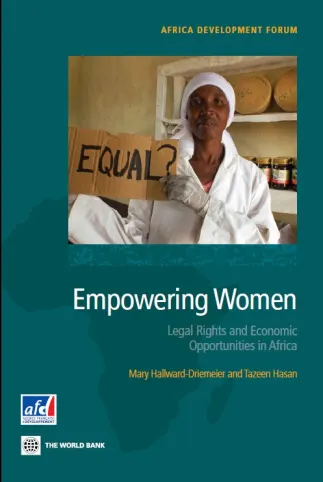Share the page
Empowering Women - Legal Rights and Economic Opportunities in Africa
Published on

This book looks at the effect of legal and economic rights on women's economic opportunities. It focuses on entrepreneurship because women in Africa are active entrepreneurs, and the links between property rights and the ability to enter contracts in one's own name affect entrepreneurial activities. The laws that are the focus of this book are not business laws and regulations, which are generally gender blind and presuppose that individuals can own property or enter into contracts. Instead, the book examines family, inheritance, and land laws, which oft en restrict these rights in ways that hurt women. This book surveys constitutions and statutes in all 47 countries in Sub-Saharan Africa to document where gender gaps in these laws impinge on women's legal capacity, property rights, or both. The book also looks at some labor law issues, such as restrictions on the types of industries or hours of work in which women may engage and provisions for equal pay for work of equal value.
Useful Information
-
Authors
-
Mary HALLWARD-DRIEMEIER, Tazeen HASAN
-
Number of pages
-
236
-
Collection
-
Africa Development Forum
